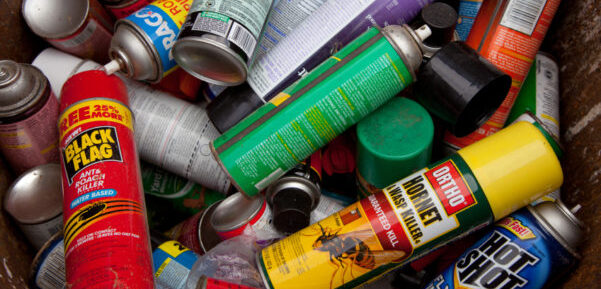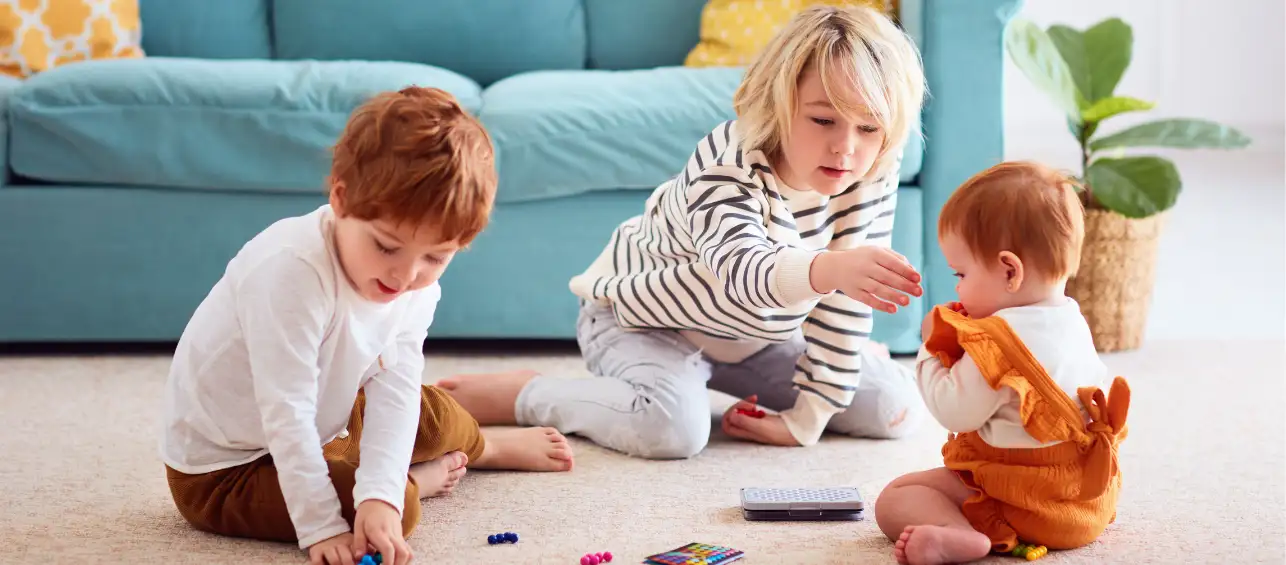Spring is here and that means it’s time to start prepping our yards for the warmer weather. At our house, that means fertilizing the lawn and having the house sprayed for those pesky bugs that are coming out of their warm winter shelters. Now is a good time to remember that pesticides pose risks to those who come in contact with them.
Pesticides are used to kill, repel or harm a living organism (the pest). Since infants take more breaths per minute, and children are often closer to the ground and touching and putting things in their mouths, they are more likely to get exposed to pesticides.
How Dangerous Are Pesticides?
The risk of pesticide poisoning depends on the active ingredient(s) and amount of exposure. Pesticide poisoning can cause people to become very sick, and can lead to trouble breathing, stomach problems, skin irritation, dizziness and headaches, and in extreme cases, convulsions or coma.
Here at the Cincinnati Drug and Poison Information Center, we get over 100 calls each month related to pesticide exposure. I once took a call about a toddler who got into some wasp killer. The parent was working in the yard while the little girl was playing nearby. She wandered into the garage to find a toy and instead knocked over the wasp killer can and started playing with it. Thankfully she didn’t put any in her mouth, but even with exposure to the skin, there is the potential for absorbing the poison.
The most likely ways pesticides can enter the body are by:
- Being absorbed through the skin or eyes,
- Being ingested through the mouth, or
- Being inhaled into the lungs.
Take Our Pesticide Safety Quiz
It’s clearly better to be safe than sorry when dealing with household pesticides. Take our quiz to see how savvy you are about preventing pesticide exposure. Answer yes or no to each of the following questions:
- Are all pesticides up high out of the reach of children or in a locked cabinet or garden shed? This includes products to kill insects, weed killer, pets’ flea and tick treatments, bug repellent, ant and rodent bait, mothballs, and mold removal products.
- After working in the yard, do you remove shoes or clothing that could have pesticide residue on them before entering your home?
- When exterminators spray inside or outside your home, do you and your children stay away from the treated area until after the spray has dried?
- Do you keep your kids in the house as you prepare and apply insecticides or other lawn chemicals outside?
- When working with pesticides, do you have paper towels, sawdust, or kitty litter close by in case of a spill?
- Do you read and follow the instructions on the label of all pesticides before using the product?
- Do you wash your hands after using pesticides?
- Have you talked with your children about the dangers of pesticides, emphasizing “No touch!” to your littlest ones?
- Do you keep pesticides in their original containers with labeling intact?
- If using a pest control fogger (often called “bug bombs”), do you wait the appropriate amount of time as indicated on the label before re-entering the home?
10 yes answers: Pesticide Pro. Nice job! You’ve done well at reducing the chance of an accidental pesticide exposure at your house — keep up the good work!
5-9 yes answers: Room for Improvement. You’re well on your way to limiting pesticide exposures in your home. Make a few more small changes and your family will be even safer.
0-4 yes answers: Dangerous Territory. Now is a good time to learn more about safe use practices for pesticides. Use our quiz as a checklist for making improvements around your house that can help lower the possibility of pesticide exposures.
If you or someone in your family has been exposed to a pesticide, contact your Drug and Poison Information Center immediately at 1-800-222-1222.






This is an excellent article reminding parents of safe handling and storage of pesticides. However, I don’t believe it is ever necessary to use pesticides indoors unless there is an active threat of termites, carpenter ants, or other animals that can actually harm the building or the inhabitants. We can all learn to get along with the bugs that are merely a nuisance, and there are plenty of “natural” pesticides and other household substances that can be tried first, before synthetic pesticides that we know will harm other creatures, including us. A flyswatter can be useful if the pest cannot simply be removed from the house. Most ants, spiders, stink bugs, and other annoying “pests” are of no danger to us or our families, and we would do well to appreciate their roles in the cycles and food webs of the natural world instead of simply destroying them.
I wish that Nancy Shipman’s comments from 2015 were addressed in this go-round. Is risk eliminated by being a pesticide pro? And if not, what risks remain?
Thanks for the comment, Leah. If a reader answers yes to all 10 of these questions, they know a great deal about reducing the chance of accidental exposures to pesticides in and around their home. It’s always important to stay vigilant when it comes to the use of any chemical substances.